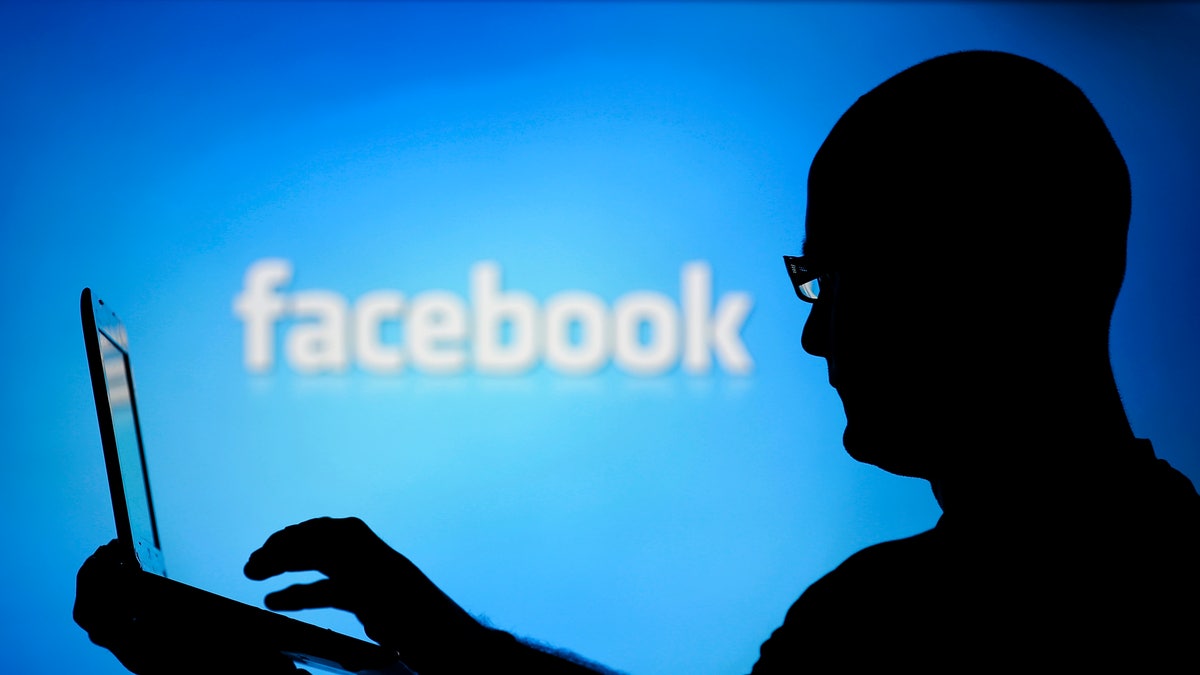
August 14, 2013 - FILE photo of man silhouetted against a video screen with Facebook logo. (REUTERS)
Did you know that I started Facebook? Really! Well, sort of ... When I was in college at all-male Princeton, I tried to make money by adding photos to a snarky guide to neighboring girls' schools. The guide had been a profitable publishing success, and my idea was simply to add the girls' pictures. Schools like Wellesley, Bryn Mawr, Vassar, etc., already published those pictures, so all I had to do was get permission from administrators at those schools. Surprisingly, they gave it to me.
Unfortunately for me and my "Face Book," there was no Internet then. So I don't own a company worth $180 billion. The book, "Who the Girls Are," was a flop. Oh, well.
I've started other businesses since then -- and they didn't succeed either.
[pullquote]
But that ability to try to succeed is a reason America has been successful. In the USA, it's OK to fail and fail and try again. In most of Europe and much of the world, the attitude is: You had your shot, you failed, and now you should just go work for someone else.
But this limits the possibilities. And some of America's biggest successes came from people who failed often.
We know that Thomas Edison invented the light bulb, but few people know that Edison filed 1,000 patents for ideas that went nowhere. He was fired by the telegraph office. He lost money investing in a cement company and an iron business.
Henry Ford's first company failed completely.
Dr. Seuss's first book was rejected by 27 publishers.
Oprah was fired from her first job as a reporter. A TV station called her "unfit for TV."
But they all kept striving -- and succeeded. They were lucky to live in America, where investors and your neighbors encourage you to try and try again. We are lucky to benefit from their persistence.
But those happy experiments are less likely to happen today. Now there are many more rules, and regulators add hundreds of pages of new ones every week.
Dallas Mavericks owner Mark Cuban left school with no money and no job prospects. He managed to become a billionaire by creating several businesses from scratch. I asked him if he could do it again today, and he said, "No ... now there's so much paperwork and regulation, so many things that you have to sign up for that you have a better chance of getting in trouble than you do of being successful."
That's tragic.
It's not just big corporations that get hassled by regulators, the way progressives might like to imagine.
Kids' lemonade stands -- and one I tried to open in New York City -- are sometimes shut down for not having proper business licenses. When Chloe Stirling was 11-years-old, health officials shut down her home cupcake-making business.
The more government "protects" us, the more it puts obstacles in the way of trying new things. It does that every time it taxes, regulates and standardizes the way things are done. Simultaneously, government offers "compassion" -- welfare and unemployment benefits.
Faced with the choice of collecting unemployment or putting your own money at risk and hiring an army of lawyers to deal with business regulations, I understand why people don't bother trying. When that attitude is pervasive, the American dream dies.
On my TV show this week, economist David Goldman says, "The U.S. government has done everything possible to make it hard for people to take a new idea from inception to startup to expansion." He says that when he told a former CEO that he was going to be on my show, the ex-CEO said: "Just tell them to shut Washington down. That's all they need to do!"
Washington won't shut down. But couldn't regulators just chill out for a while?
Big government doesn't send us the message that we can make it on our own and that great things may happen if we dare to try. Government mostly hinders us, and then brags that it is waiting to take charge when we fail.
